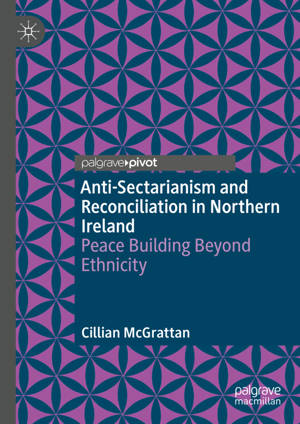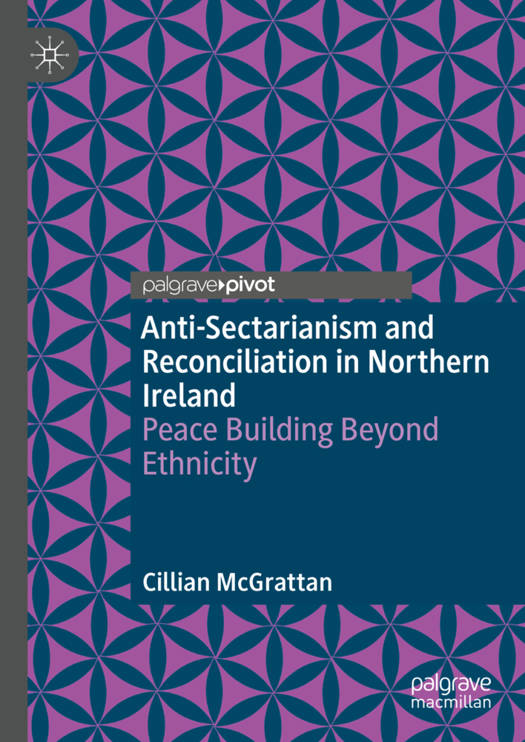
- Retrait gratuit dans votre magasin Club
- 7.000.000 titres dans notre catalogue
- Payer en toute sécurité
- Toujours un magasin près de chez vous
- Retrait gratuit dans votre magasin Club
- 7.000.0000 titres dans notre catalogue
- Payer en toute sécurité
- Toujours un magasin près de chez vous
Anti-Sectarianism and Reconciliation in Northern Ireland
Peace Building Beyond Ethnicity
Cillian McGrattanDescription
This book addresses the limitations of dominant ways of thinking about and doing politics in Northern Ireland. Arguing for the foregrounding of anti-sectarianism as a way of displacing the divisive dynamics of religion and nationalism, it provides a new lens for studying Northern Ireland. Drawing upon a close reading of the political philosophy of Jacques Rancière, the book aligns anti-sectarianism to the ways that people refuse affiliation with the traditional ethnic values and practices. It describes this refusal as dis-identification, and reveals how dissensus acts as an alternative to the displacing of equality. Returning equality and equality claims-making to a clear position of visibility, the book provides a radical rethinking of Northern Ireland a quarter century beyond the 1998 peace accord. It will appeal to all those interested in politics and peacebuilding studies.
Spécifications
Parties prenantes
- Auteur(s) :
- Editeur:
Contenu
- Nombre de pages :
- 139
- Langue:
- Anglais
Caractéristiques
- EAN:
- 9783031587719
- Date de parution :
- 13-08-24
- Format:
- Livre relié
- Format numérique:
- Genaaid
- Dimensions :
- 148 mm x 210 mm
- Poids :
- 295 g

Les avis
Nous publions uniquement les avis qui respectent les conditions requises. Consultez nos conditions pour les avis.






